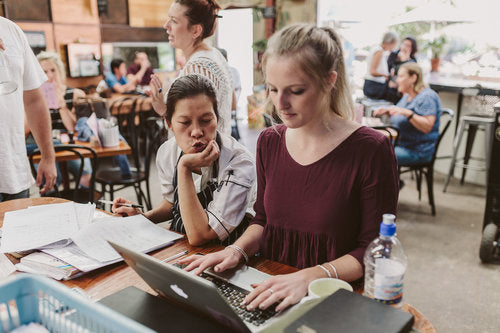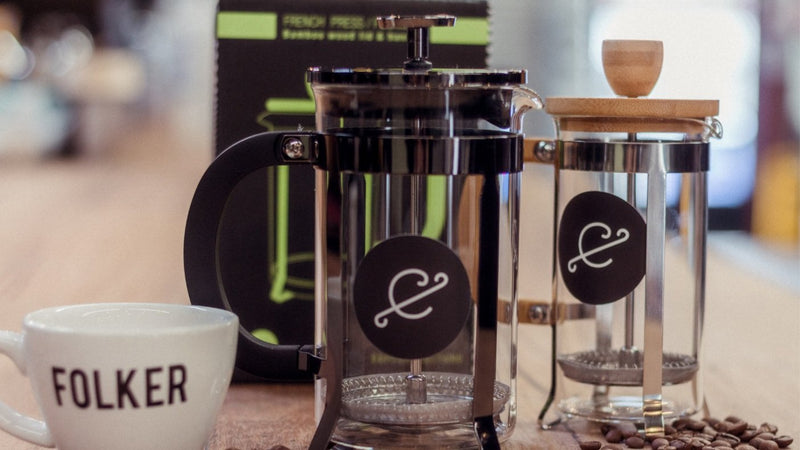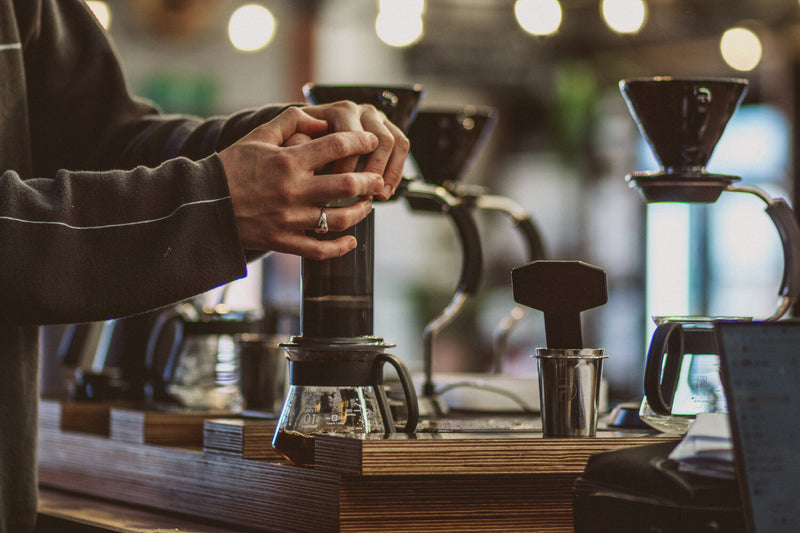If you’re a fan of the world barista championships* like I am, then you may have noticed a trend over the last few years with many competitors starting to freeze their coffee. In turn they’re achieving really high scores from the judges.
After witnessing this trend within the specialty coffee industry, the next question was how do we start to implement this at Commonfolk to better showcase the sensational coffee we are roasting?
Why are we freezing coffee?
There are quite a number of benefits to freezing coffee but the two biggest advantages are the increase in long term shortage of the coffee, and more uniform particle size distribution of the coffee [when it is ground frozen] resulting in a sweeter brew.

Speaking on the storage of coffee, usually after coffee is roasted you have a relatively small window within which the coffee is at its most delicious. This varies from coffee to coffee but is typically 1-4 weeks from the roast date. The ability to freeze coffee allows us to capture its characteristics at peak deliciousness. This is a huge game changer, not only for roasters who may want to invest in more expensive green beans without the pressure of selling out immediately, but also for the home barista who may only brew up one or two coffees every day and doesn’t want to worry about the coffee losing quality too quickly.
We have found that the best practise for freezing our coffee is to pre-dose to our preferred recipes and vacuum seal the individual portions before freezing. Removing the oxygen from the container helps eliminate oxidation entirely, and assists with moisture regulation.
Perhaps the more interesting of the two benefits mentioned, is the way the frozen coffee grinds differently compared to room temperature beans. Once roasted coffee beans become very brittle, allowing them to be easily ground by metal or ceramic burrs. Ground coffee can be further broken down into three particle sizes categories; fines, boulders, and target size. Fines are ground coffee particles that are significantly smaller than our target size, and when brewing will over extract and create bitterness in the final brew. Boulders are too large and don’t get enough contact time with the water to adequately brew and as a result under extract and can result in an insipid and sour characteristic. Our target size is like that third bowl of porridge, it’s just right! It is the perfect size to achieve the target time for extraction and results in a rich and sweet cup of coffee. Frozen coffee grinds more uniformly than room temperature making it easier to achieve higher levels of particles that match our target size.
How does this impact the flavour?
When we have high numbers of uniform coffee particles, they extract at a similar rate. This means that a significantly smaller amount of the ground coffee will be adding bitterness or sourness to our brew. We found that brewing frozen vs regular storage of coffee meant we could achieve a more pleasant cup with brighter acidity and a much higher clarity of flavour. It also helped to remove any unpleasant astringency and bitterness from the aftertaste.

Not only did we improve the sensory sensation of our brews, we’ve got the maths to back it up. We use a refractometer to determine the total diluted solids (TDS) of the coffee. We can use this number in an equation to accurately measure our extraction yields as a percentage. Basically we can find out how much of our brewed coffee IS coffee.
We saw an increase in the TDS by using frozen coffee, and as a result, an increase in the extraction yield percentage. The jump was surprisingly significant considering the only thing that had changed was the temperature the coffee was stored and ground at. Using the same recipe room temperature coffee achieved an extraction yield of 19.05% while the frozen coffee achieved an extraction yield of 20.7%.
Where can I try frozen coffee?
We have launched our frozen coffee program across all Commonfolk venues in Mornington, Frankston and South Yarra.
*totally a legit thing AND they were just won by our good mate and producing partner Diego Campos
 Cart
Cart



